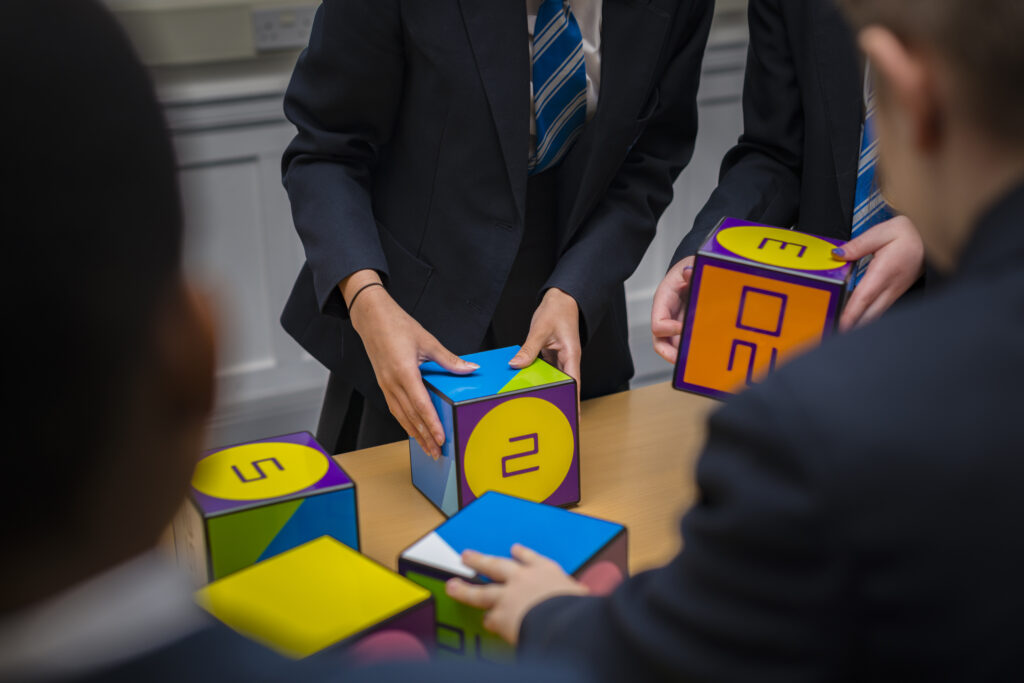Mathematics
At Holyrood we are building our curriculum around the idea of mastery learning. Mastery learning is the formalisation of formative assessment. We use it robustly to make sure that pupils are achieving and developing their skills and confidence in mathematics.
The six most dangerous words in teaching “They seemed to get it ok”.
How do we know? We use on-going formative assessment such as mini whiteboards, quizzes, exit tickets, class questioning and marking of work. In addition, with S1 and S2 classes, this year, we use regular multi-choice tests.
The feedback from these quizzes is important. If the class have not done well, then there is no point in moving on. We do not have timelines. We have outlines. The pace is dictated by the learning of the class. If more consolidation is required then the time should be taken to do it.
Key Point: We teach every topic once, but properly. Pupils need to master addition of negative numbers when they first encounter it as we won’t spend a week on it again later in school. (We will of course revise it for summative testing). Using Diagnostic Questions and other strategies we need to ensure that the majority of our class can do the majority of the work before moving on. Aim for 90% of the pupils able to score 80%.
![]()
We have streamlined the curriculum so that we have time to teach well. Pupils with a solid foundation in the BGE will achieve more in the senior phase.
The model below captures the essence of mastery learning.

In this course you will build on your previous mathematical experience. You will learn to interpret information and solve problems relevant to real life and mathematical situations. You will use, explore and manage mathematical language and ideas, which are all important in scientific and research work.
The course has three compulsory units, plus an added value unit that assesses your practical skills.
for further details – https://www.npfs.org.uk/wp-content/uploads/2013/03/nutshell_mathematics_N4_E.pdf
Throughout this course, candidates acquire and apply operational skills necessary for developing mathematical ideas through symbolic representation and diagrams. They select and apply mathematical techniques and develop their understanding of the
inter dependencies within mathematics. Candidates develop mathematical reasoning skills and gain experience in making informed decisions.
for further details – https://www.npfs.org.uk/wp-content/uploads/2013/03/nutshell_mathematics_N5_E.pdf
This course will develop, deepen and extend the mathematical skills necessary at this level and beyond. You will acquire and apply operational skills necessary for exploring mathematical ideas through symbolic representation and diagrams. In addition, you will develop mathematical reasoning skills and will gain experience in making informed decisions. The course consists of three compulsory units and the course assessment unit.
for further details – https://www.npfs.org.uk/downloads/higher-mathematics/
Learners will acquire and apply operational skills necessary for exploring more complex mathematical ideas. In addition, learners will develop mathematical reasoning skills and will gain experience in logical thinking and methods of proof. The Advanced Higher Mathematics Course has three Units, totaling 24 SCQF credit points, with an additional eight SCQF credit points to allow the use of an extended range of learning and teaching approaches, consolidation of learning, integration, and preparation for external assessment.
Course consists of three units: Methods in Algebra and Calculus, Geometry Proofs and Systems of Equations and Applications of Algebra and Calculus.
for further details – https://www.planitplus.net/Nationals/View/205


